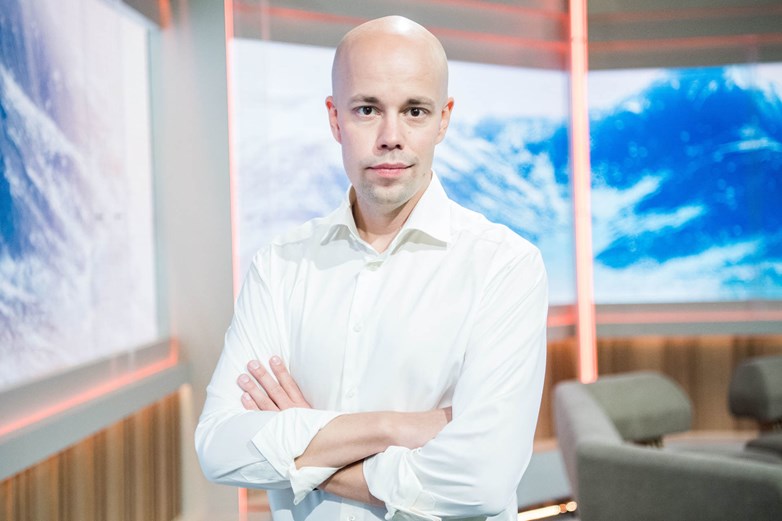Sports and research blend in Viaplay Vinter
You may have spotted him in a tv studio discussing football, handball or skiing. But Gustav Almqvist isn’t perhaps the most traditional of sports commentators. With a background in both psychology, business and economics, researcher Gustav Almqvist is passionate about the intersection of economics and psychology – and of course sports.
While studying for his Bachelor in Business and Economics at SSE, Almqvist simultaneously got a Master’s in psychology. Later, he got his PhD in Business Administration at SSE, focusing on nudging.
A chance interview for the Viaplay documentary Underdogs marked Almqvist's entry into sports analysis, leading to covering prestigious events including Formula-1, NHL, Premier League football, the men’s European championship in handball and the women’s world championship in football.
Decision-making research in Viaplay Vinter
Viaplay Vinter, where Gustav Almqvist was a recurring guest, was nominated in the category Sports Production of the Year 2023. The winner will be announced during Kristallengalan on Monday, August 28.
“In Viaplay Vinter I have used decision-making research to discuss for instance heat-selection, pacing, tactics and risk-taking with my studio colleagues, many of them former Olympic gold medalists and world champions. Performance psychology, even the personalities of elite athletes, has also been a reoccurring theme on the show.”
While he mostly does live presentations and studio discussions, he has also co-written and hosted, among other things, the documentary För hela ditt jävla liv, shot at SSE’s premises.
“För hela ditt jävla liv was as much a management film as it was about handball. As such, it featured several management and leadership concepts, and provided an inside-view on how to establish a world-leading team and affect the organizational culture in arguably the most competitive industry there is: elite sports.”
He adds:
“I have also debated the business side of sports, for example how to get more money into women’s football and the valuations of sports franchises, leagues and brands. Data have enabled me to do predictions and power rankings, and even develop an actual optimization algorithm for heat-selection in cross-country skiing.”
“Modern sports are very scientific”
Almqvist says modern sports are, in fact, very scientific. And research can contribute to enhancing the overall enjoyment and understanding of sports for everyone involved.
“The top sports organizations are research-oriented and data-driven. So nowadays it may take a scientific perspective just to reflect on what already goes on in elite sports and explain it to viewers. Whether you are casual viewer or a sports nerd, a neutral or a die-hard fan, you expect to be educated as well as entertained,” he says.
“I think a research-based view is appreciated by everyone as long as it is accompanied by good story-telling. Take Liverpool football club. Everyone knows of their charismatic manager, Jürgen Klopp. But behind him for many years were Ian Graham, a PhD in physics from Cambridge, using statistics to choose their transfer targets and even getting Klopp his job. There is a story in that too. Just like there was one in the classic Moneyball film. I saw Oppenheimer in the theatre the other day, and it appeals to you whether you are really into physics or simply a Cillian Murphy fan. I think it is the same with research and sports.”
Technology and consumer research
Technology and consumer research are both highly relevant to sports, Almqvist explains. Sports broadcasting is, at its core, innovative and technology-driven.
“Digitalization has already revolutionized how sports is consumed through streaming and many expect VR and AR technologies will come next. On the demand side, consumer behavior is already changing rapidly – and broadcasters will have to find new, complementary ways to create engaging content and monetize it going forward.”
So, what exciting developments or trends does he foresee at the intersection of sports, research, and economics in the coming years?
“I expect the business side of sports to continue to develop and really take off, and hope to see many SSE alumni contribute to that development in the future. Sports broadcasting will also be an interesting industry going forward, with potential for new business models to develop under possible competition from tech companies.”
Gustav Almqvist is a Postdoctoral Research fellow at the Stockholm School of Economics (SSE) whose research interests are judgment and decision making, economic psychology, and sports analytics.
